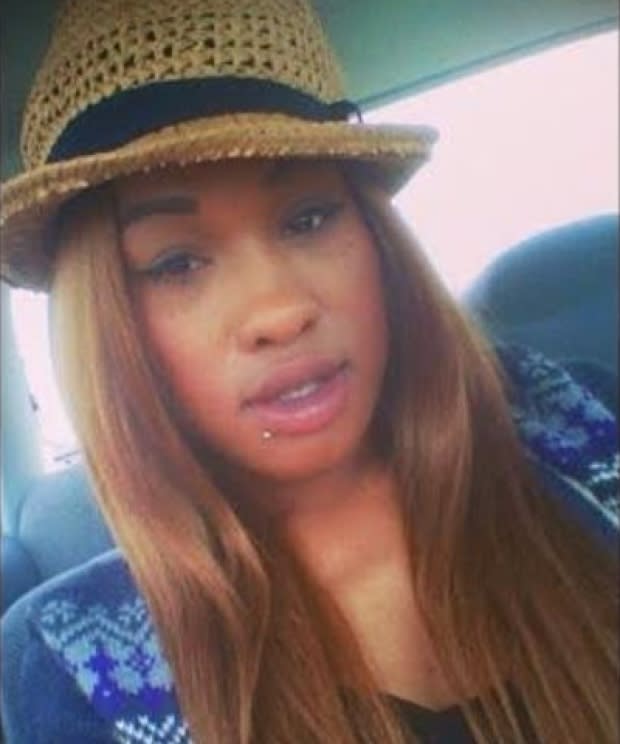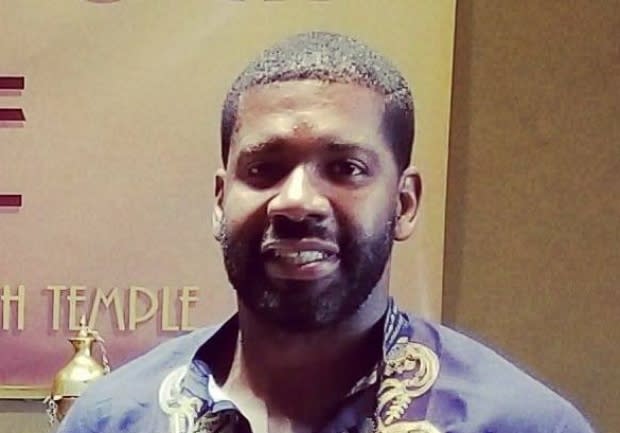'Who decides whether you're dead?': Ontario court case could prove precedent-setting
The family of Taquisha McKitty will argue in the Ontario Court of Appeal Wednesday that she's still breathing and alive, even though a lower court has declared her dead.
"We're not convinced that she's dead," said Bishop Wendell Brereton from his church, the Breakthrough Temple in Brampton.
He has visited McKitty in hospital and witnessed her movements.
'It's not a corpse lying there. It's a person'
"Legs, arms. From head to toe she's moving," he said.
"So, it's not a corpse lying there. It's a person."
McKitty was declared dead by doctors more than a year ago after she went into cardiac arrest following a drug overdose and was put on life support.
McKitty's lawyer will argue in appeal court in Toronto that an Ontario Superior Court judge erred in not recognizing McKitty's charter rights, and not taking into account her religious beliefs in a case that could prove precedent-setting.
"Taquisha is alive according to her own religious beliefs," lawyer Hugh Scher writes in a court factum.
He adds that some jurisdictions do take religious beliefs into account before declaring someone dead.
"Taquisha remains alive in Nova Scotia, New York, New Jersey and elsewhere, but according to [Ontario Superior Court] is dead in Ontario."
Doctor's lawyer argues McKitty is dead
Erica Baron, the lawyer representing Dr. Omar Hayani, who first declared McKitty dead at Brampton Civic Hospital, argues Scher is misinterpreting Nova Scotia law, and that McKitty would be considered dead everywhere in Canada.
In her legal arguments, Baron writes that because of the family's doubts regarding McKitty's movements, further neurological tests were done.

"These movements are not brain based," she wrote.
"If mechanical ventilation was discontinued, her heart would cease beating very quickly."
'Who decides whether you're dead or not?'
Bio-ethicist Kerry Bowman from the University of Toronto raised a number of questions about the issue.
"Who decides whether you're dead or not?" he asked in a phone interview, adding that as a whole, western societies are more focused on brain activity as an indicator of life than eastern societies.
"Can a doctor say, 'You're dead,' irrespective of what your family and your religion believes to be dead?"
He believes the courts need to clearly rule on what constitutes death.
In another Ontario case, the family of an Orthodox Jewish man declared brain dead also disputed the finding and went to the courts.
In that case, though, 25-year-old Shalom Ouanounou's heart later stopped beating and a Jewish doctor declared him dead.
The judge in that case then declared the case moot.

Bowman says one uncomfortable part of this issue that can't be ignored is money and the cost of keeping people on life support indefinitely who show no brain activity.
"I'm not saying we should make resource allocation decisions at the bedside, to say, 'This loved one of yours is not worth money.'"
But Bowman does say the courts may need to decide the line between life and death.
In the McKitty case, the Ontario Court of Appeal may not be the end.
Brereton says the church is determined to have the issue heard by the Supreme Court of Canada if the appeal decision is not in their favour.

